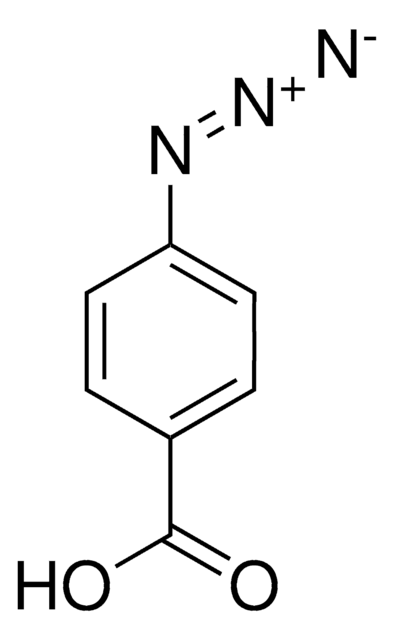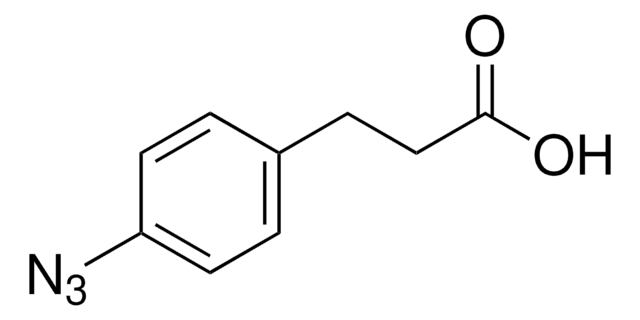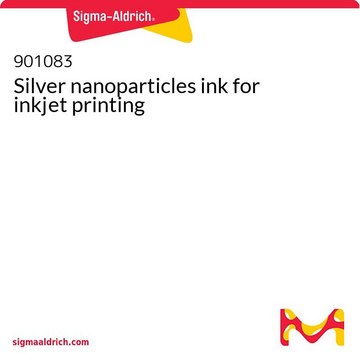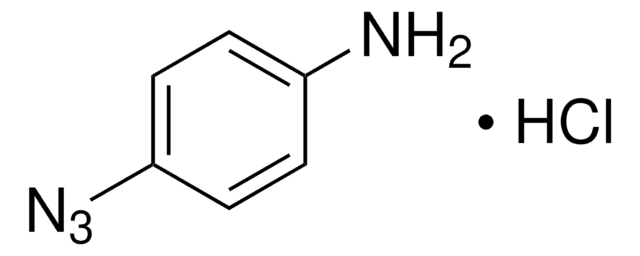909491
4-Azidobenzoic acid
≥97%
Synonym(s):
4-N3-benzoic acid, 4-Azido-benzoic acid, P-Azidobenzoic acid, Benzoic acid, 4-azido-
About This Item
Recommended Products
Assay
≥97%
form
powder
availability
available only in USA
mp
175 °C (dec.) (lit.)
storage temp.
2-8°C
InChI
1S/C7H5N3O2/c8-10-9-6-3-1-5(2-4-6)7(11)12/h1-4H,(H,11,12)
InChI key
PQXPAFTXDVNANI-UHFFFAOYSA-N
Looking for similar products? Visit Product Comparison Guide
Application
Signal Word
Danger
Hazard Statements
Precautionary Statements
Hazard Classifications
Eye Irrit. 2 - Self-react. B - Skin Irrit. 2 - STOT RE 1 - STOT SE 3
Target Organs
Blood, Respiratory system
Storage Class Code
5.2 - Organic peroxides and self-reacting hazardous materials
WGK
WGK 3
Flash Point(F)
Not applicable
Flash Point(C)
Not applicable
Choose from one of the most recent versions:
Certificates of Analysis (COA)
Don't see the Right Version?
If you require a particular version, you can look up a specific certificate by the Lot or Batch number.
Already Own This Product?
Find documentation for the products that you have recently purchased in the Document Library.
Our team of scientists has experience in all areas of research including Life Science, Material Science, Chemical Synthesis, Chromatography, Analytical and many others.
Contact Technical Service












